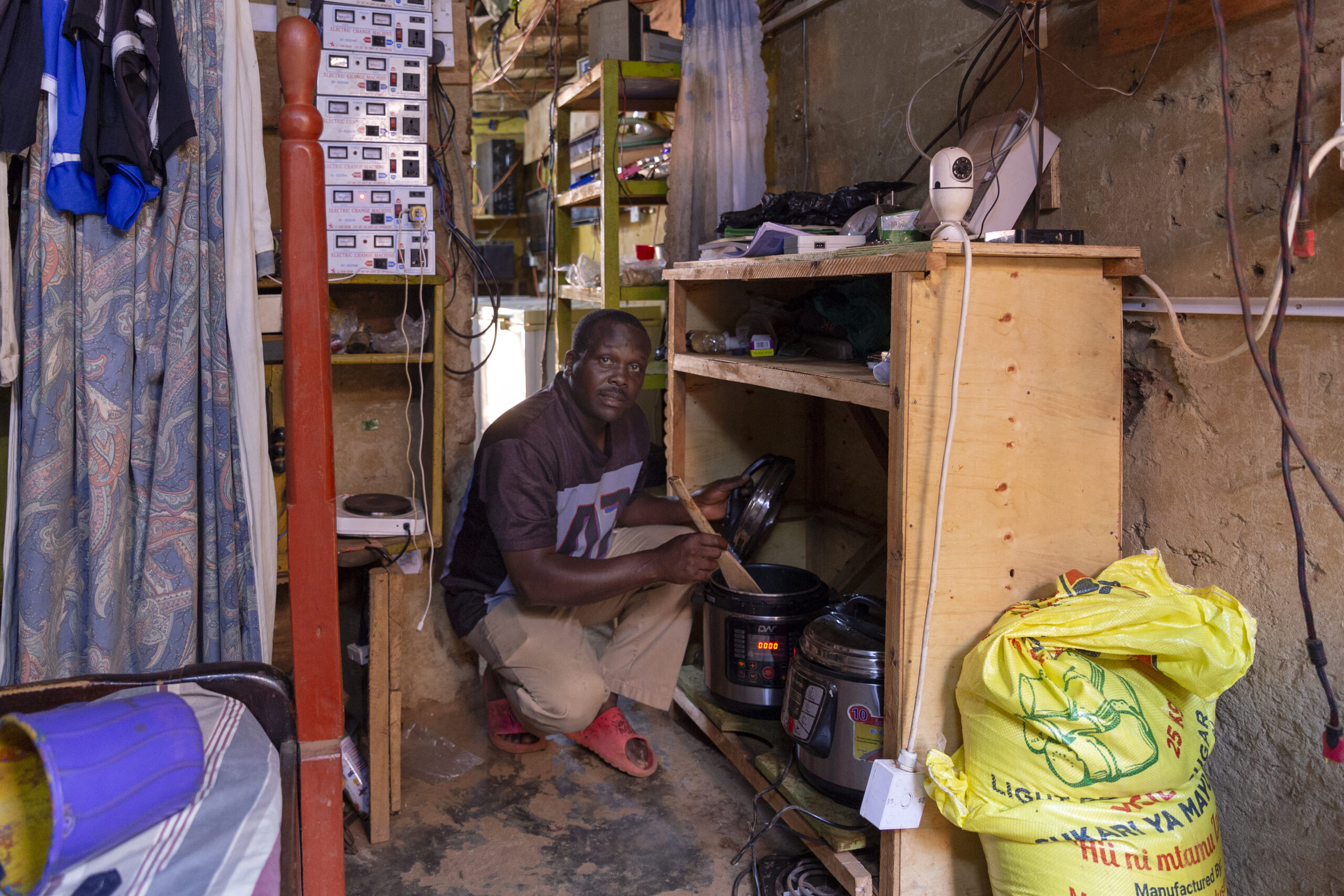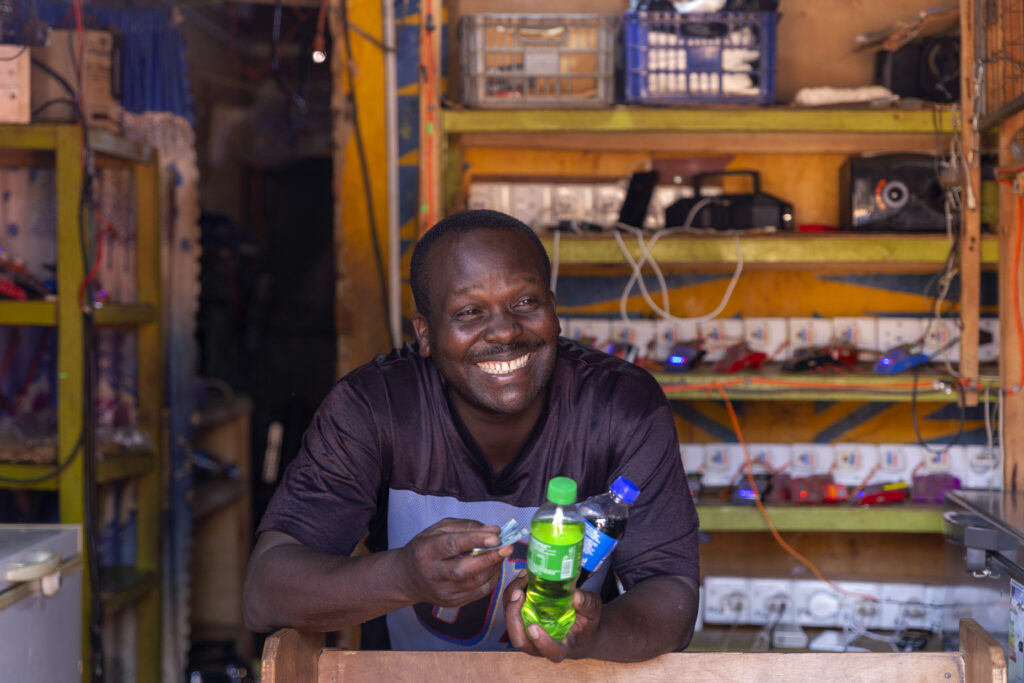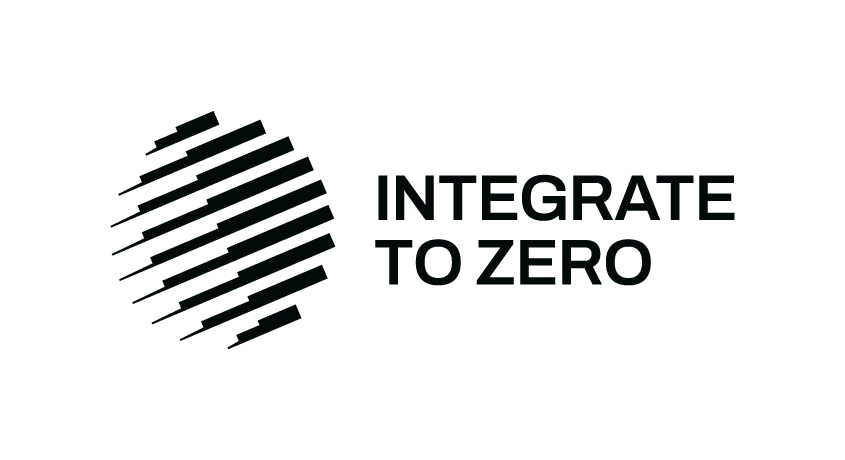Power For All has shown that when centralised utility companies and decentralised energy companies collaborate, they provide more energy to more people in a shorter time, and create sustainable businesses. Seeking a real-world pilot that could prove this, Power for All engaged partners to work alongside a traditional distribution utility in Uganda. Ranging from local villagers to the Ministry of Energy, hundreds of stakeholders worked together to jointly develop a new approach to electrification called, Utilities 2.0.

The Utilities 2.0 Uganda Pilot
Most of Uganda’s 40 million people do not have access to energy. The main utility, Umeme, found when first-time energy users were connected to their grid, their new customers used little or no energy — limiting the benefits to the customer and revenues to the utility.
The Utilities 2.0 coalition – which included Umeme alongside many other partners – tackled this problem using expertise in customer-building from off-grid clean energy companies like Equatorial Power, East African Power and EnerGrow, all members of the partnership. And the coalition used grant funds from The Rockefeller Foundation to model the low-cost capital available to utilities (a core business problem for them).
The Utilities 2.0 Twaake project (meaning ‘light’ in Ugandan) built a local energy ecosystem in Kiwumu that helped homeowners understand how to use and pay for energy, and how to build businesses and increase incomes with renewable power. After consultation with local people, the Utilities 2.0 partnership installed a local solar mini-grid in a few days (something a centralised utility would have taken several months to do.
Coupled with appliance financing, education, and training to encourage energy use, the customer-centric approach of Utilities 2.0 gave local people the tools and confidence needed to start businesses and even open health clinics. The growing use of clean power brought wider energy access across the community, and dramatic improvements in people’s quality of life.
Faster, more affordable connections. Stronger, more profitable energy businesses
The mini-grid – a system including solar panels and batteries, designed to serve multiple customers –powered up cinemas, cafes, metalworking, milling and more. The revenues of the new businesses created rose by 68 percent during the pilot period. Affordable finance for new or expanded businesses was key – with help for entrepreneurs to buy new equipment and machinery, demand for electricity in the village rose by almost 200 percent. Those benefiting including students at the local school, which now uses an electric pump to save pupils from long journeys to collect water. The village also has streetlights for the first time, and a community-based milling and drying machine to support its many local farmers.
Local entrepreneurs benefiting from the arrival of electricity include Kizza James – who runs a shop, cinema and phone charging service. While he used to have limited access to energy from a few of his own solar panels, a more reliable supply from a professionally installed mini-grid helped him grow his business ventures and launch new ones.
Then project has also helped local miller Lugya Fred. He had previously relied on a diesel generator to power his milling equipment, which spilled out fumes that tainted the flour he made. Clean energy has tackled this problem, and also halved the cost of production. The quality of his flour has gone up too, bringing more customers to his door.

Changing the Energy System
With demand for energy in Kiwumu much higher, the village of was connected to Umeme’s national grid – as it was now profitable and sustainable for the utility company to serve the community. This meant the solar mini-grid could be taken apart for re-use elsewhere – an approach that tackles one of the biggest expenses in electrification.
While the scheme in Kiwumu was a pilot project, the time and cost savings of this approach have encouraged international finance institutions and Uganda’s energy ministry to replicate and scale up the approach.
The country’s own government is a vocal supporter of this model. If applied at scale, Utilities 2.0 can radically reduce connection costs, accelerate the growth of energy access by and create a more just and more equitable energy system.
Power for All founder and CEO Kristina Skierka explains: “Neither centralised nor decentralised energy alone can solve energy poverty. It is only through partnership that we can create the kind of energy system where a world where everyone has access to the quality of life and opportunities that come with access to clean, reliable, and affordable energy.”
